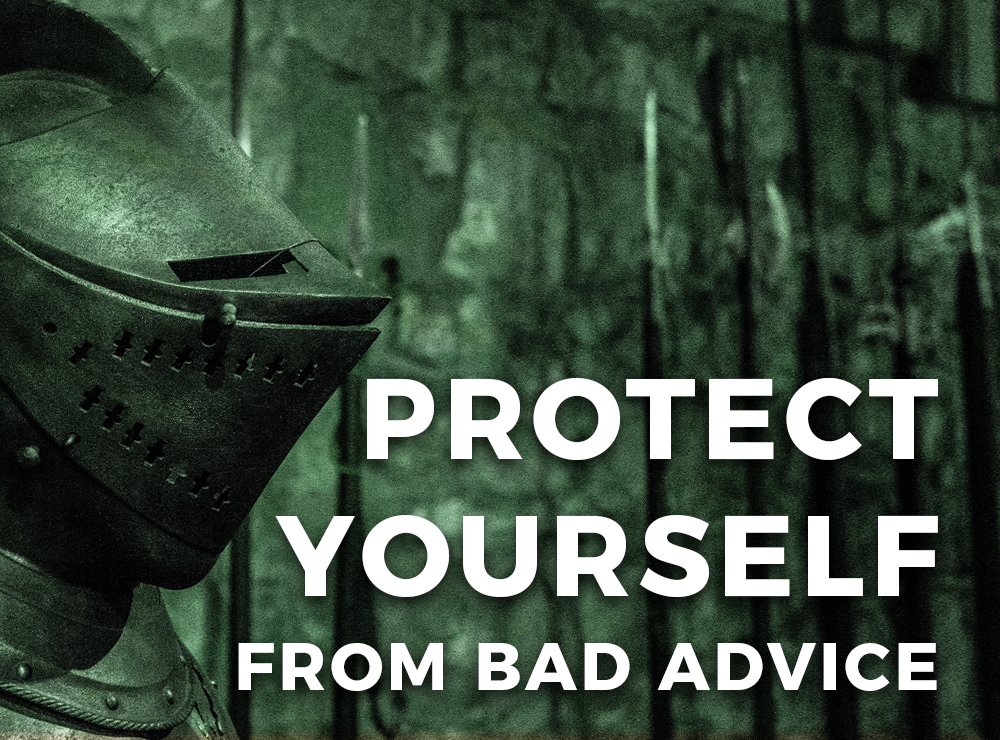
Almost all of us, at some point in our lives, need good financial advice. But although they’re generally well intentioned, most advisers around the world are sill giving bad advice, which can actually cause damage to the clients they purport to serve.
In our opinion, the proportion of advisers in the UK and the US who are giving bad advice is somewhere around 75%. JOHN DE GOEY believes the figure in Canada is about 95%.
John, a portfolio manager based in Toronto, has recently published a book, STANDUP to the Financial Services Industry: Protecting Yourself from Well-Intentioned But Oblivious Advisors.
We’re going to be serialising here on TEBI over the course of the next three weeks. Here’s Part 1.
We have a problem that is shockingly counter intuitive. Most people think we can get to better investor outcomes by increasing investor literacy, improving disclosure and/ or making advisers fiduciaries. While these are all helpful concerns and any initiatives to improve things should be encouraged, there’s another, more fundamental problem that most people have never considered: the biases and beliefs of the people giving the advice. This is an unexpected problem that virtually no one has considered to date. It is insidious and far from obvious, yet far more pervasive and than one might think. As Pogo famously quipped: We have seen the enemy and he is us.
As you might imagine, advisers will steadfastly deny that they are in any way making recommendations that are harmful to client outcomes. Nonetheless, a research paper entitled The misguided beliefs of financial advisers makes it abundantly clear that advisers tend to chase past performance, recommend concentrated positions and pay little or no attention to product costs. Meanwhile, evidence the world over has repeatedly shown all these things to be detrimental to performance. The new evidence goes on to show that advisers do not make these recommendations because they are trying to swindle their clients; rather, they make them because they honestly think the recommendations will lead to better outcomes. They follow the same strategies themselves – even after the retire.
No one who intends to be “part of the solution” will willingly admit to being part of the problem. Accordingly, advisers routinely push back when this is pointed out to them. There’s no real appetite to solve the problem. To make matters worse, most investors have no real capacity to distinguish between good advice and bad advice. What we’ve left with is an industry where well-intended advisers are unwittingly giving bad advice and the people receiving that advice have no real capacity to discern whether it is good, bad or otherwise. Left unchecked, the unintentionally bad advice could persist indefinitely because the perpetrators have no incentive or desire to rectify the situation.
This is very much like what happened over half a century ago regarding cigarettes. In 1964, the U.S. Surgeon General released a ground-breaking report that demonstrated the linkage between smoking cigarettes and the incidence of cancer. At the time, 42% of Americans (and 50% of American physicians!) were smokers. The physicians were immediately caught in a moral quandary. They had an obligation to do what was best for their patients, but there was new, scientific evidence that persuasively showed that the products they had dismissed as harmless (to the point of actively using them themselves) were, in fact, harmful. Physicians then (like advisers now) needed to not only admit they were wrong, but also change their behaviour accordingly. The very premise of what they did and how they did it was being challenged. Credible evidence could now to demonstrate that, despite their good intentions, they were contributing to a societal problem that they were sworn to mitigate.
Next time: Why do so many advisers hold misguided beliefs?
To find out more about John De Goey’s book and his efforts to educate investors, visit his website.
You may also like to read this interview that John gave to our sister blog, Adviser 2.0.










